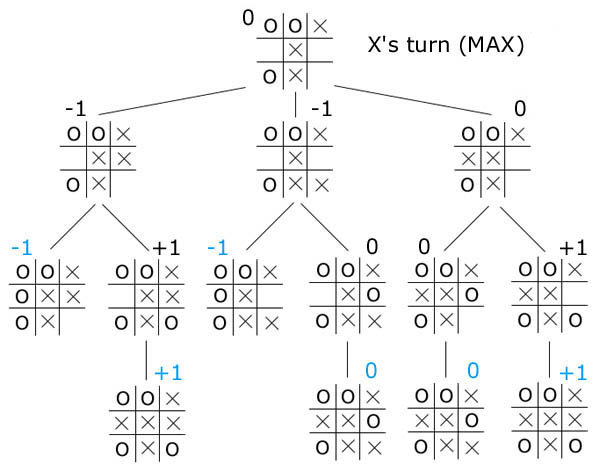Game tree
Hi everyone! I've been using GE for quite some time now but this is my first ever post. Recently I created a simple tic-tac-toe program to introduce me into board game representation etc. It worked rather well; being able to tie or beat me almost always, however there was a small glitch that annoyed me to no end so I started again. This time I want to use a different technique that uses a game tree to determine what the best move is. Minimax.
Here is an example of what I am hoping to figure out. :p

The current program knows how to search a grid (board[9]) for available moves and win moves (for X's a win is +10 and O's is -10) and assign a -1 (computers O) to open spaces. I however have no idea how to compare the outcomes. If anyone has some experience with this that would be great. Help is always awesome.
Here is an example of what I am hoping to figure out. :p

The current program knows how to search a grid (board[9]) for available moves and win moves (for X's a win is +10 and O's is -10) and assign a -1 (computers O) to open spaces. I however have no idea how to compare the outcomes. If anyone has some experience with this that would be great. Help is always awesome.